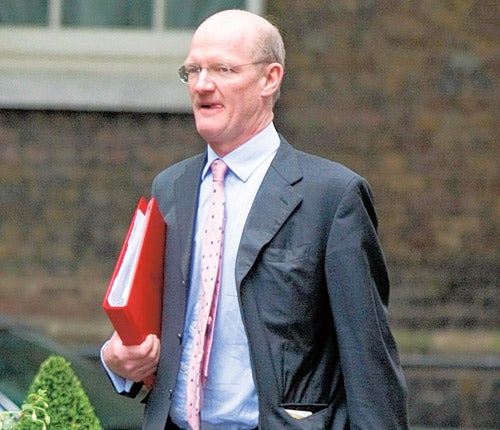Weaker colleges should close in budget overhaul, says CBI chief

Weak universities may have to go to the wall and close to help more successful institutions survive, a business leader said yesterday.
The plea by Richard Lambert, director general of the CBI, coincides with a call from the Universities minister, David Willetts, for higher education institutions to become more competitive in wooing potential students.
The CBI head warned that Britain's best universities would "pay the price for the incompetence of the worst" if ministers failed to bite the bullet.
Mr Lambert said that the weaker universities should be targeted to bear the brunt of public spending cuts. A small number were already "in serious financial difficulty", he added.
"What would the Government do about that?" he asked. "Would it take the politically explosive but probably economically sensible decision to close or merge the worst-run institutions? Or would it instead attempt to bail them out?
"That would mean the already reduced quantities of jam having to be spread even more thinly across the system, making our best universities pay the price for the incompetence of the worst."
Failing to tackle the issue could lead to "a large cohort" of universities heading for "very big trouble".
The Government is planning to cut a further £200m from the higher education budget on top of cuts totalling £1.1bn announced by Labour before the election.
A review of university finance, set up by the previous government under the chairmanship of the former BP boss Lord Browne, is scheduled to report in the autumn. It will make recommendations on student finance and grants and could opt for a major increase in top-up fees.
In his keynote address this afternoon at Oxford Brookes University, Mr Willetts will also concentrate on demanding that universities should introduce incentives to improve teaching standards.
He is a passionate advocate of higher education institutions offering students a better deal on teaching quality and lecturer contact time if they are allowed to raise the current cap on top-up fees of £3,225 a year and charge students more.
However, a final government decision on fee levels will have to await the outcome of the review.
During public hearings of the inquiry, the Russell Group – which represents 20 of the country's top research institutions, including Oxford and Cambridge – called for the cap to be lifted and for universities to be free to determine the level of their fees.
Dr Wendy Piatt, director general of the Russell Group, warned that some universities might have to consider going private if the inquiry recommended no changes to the present funding system.
In his speech yesterday, Mr Lambert also raised concerns about favouring students from less privileged backgrounds in university admissions.
One of the previous Labour government's key priorities was to widen participation.
"University education should be open to those with the capacity and ambition to undertake it, whatever their social and economic background," he said.
"Any other approach would be both socially unjust and economically inefficient, in the sense that the nation's human capital would not be developed to its full potential."
The Conservatives have questioned the previous government's aim of increasing participation in higher education to 50 per cent and are set on withdrawing the figure. At present, 43 per cent of 18 to 30-year-olds take part in higher education.
Subscribe to Independent Premium to bookmark this article
Want to bookmark your favourite articles and stories to read or reference later? Start your Independent Premium subscription today.

Join our commenting forum
Join thought-provoking conversations, follow other Independent readers and see their replies